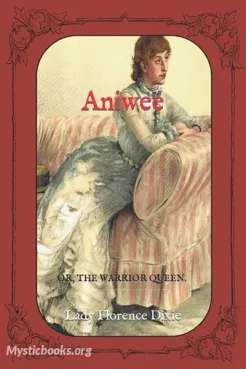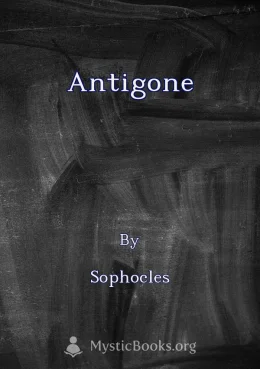
King Lear
'King Lear' Summary
Act I
King Lear of Britain, elderly and wanting to retire from the duties of the monarchy, decides to divide his realm among his three daughters, and declares he will offer the largest share to the one who loves him most. The eldest, Goneril, speaks first, declaring her love for her father in fulsome terms. Moved by her flattery Lear proceeds to grant to Goneril her share as soon as she has finished her declaration, before Regan and Cordelia have a chance to speak. He then awards to Regan her share as soon as she has spoken. When it is finally the turn of his youngest and favourite daughter, Cordelia, at first she refuses to say anything ("Nothing, my Lord") and then declares there is nothing to compare her love to, no words to properly express it; she says honestly but bluntly that she loves him according to her bond, no more and no less, and will reserve half of her love for her future husband. Infuriated, Lear disinherits Cordelia and divides her share between her elder sisters.
The Earl of Gloucester and the Earl of Kent observe that, by dividing his realm between Goneril and Regan, Lear has awarded his realm in equal shares to the peerages of the Duke of Albany (Goneril's husband) and the Duke of Cornwall (Regan's husband). Kent objects to Lear's unfair treatment of Cordelia. Enraged by Kent's protests, Lear banishes him from the country. Lear then summons the Duke of Burgundy and the King of France, who have both proposed marriage to Cordelia. Learning that Cordelia has been disinherited, the Duke of Burgundy withdraws his suit, but the King of France is impressed by her honesty and marries her nonetheless. The King of France is shocked by Lear's decision because up until this time Lear has only praised and favoured Cordelia ("... she whom even but now was your best object, / The argument of your praise, balm of your age, ...").[1] Meanwhile, Gloucester has introduced his illegitimate son Edmund to Kent.
Lear announces he will live alternately with Goneril and Regan, and their husbands. He reserves to himself a retinue of 100 knights, to be supported by his daughters. Goneril and Regan speak privately, revealing that their declarations of love were false and that they view Lear as a foolish old man.
Gloucester's bastard son Edmund resents his illegitimate status and plots to dispose of his legitimate older stepbrother, Edgar. He tricks his father with a forged letter, making him think that Edgar plans to usurp the estate. The Earl of Kent returns from exile in disguise (calling himself Caius), and Lear hires him as a servant. At Albany and Goneril's house, Lear and Kent quarrel with Oswald, Goneril's steward. Lear discovers that now that Goneril has power, she no longer respects him. She orders him to reduce the number of his disorderly retinue. Enraged, Lear departs for Regan's home. The Fool reproaches Lear with his foolishness in giving everything to Regan and Goneril and predicts that Regan will treat him no better.
Book Details
Language
EnglishOriginal Language
EnglishPublished In
1606Authors

William Shakespeare
United Kingdom
William Shakespeare was born on April 23, 1564, in Stratford-upon-Avon. The son of John Shakespeare and Mary Arden, he was probably educated at the King Edward VI Grammar School in Stratford, where he...
Books by William ShakespeareDownload eBooks
Listen/Download Audiobook
Related books

Michael Kohlhaas (English Translation) by Heinrich von Kleist
Michael Kohlhaas is a gripping tale of a man's relentless pursuit of justice after suffering a grave injustice. Set in 16th-century Germany, the novel...

Home Education Series Vol. IV: Ourselves, Book I. Self-Knowledge by Charlotte Mason
Embark on a captivating journey of self-discovery with "Home Education Series Vol. IV: Ourselves, Book I. Self-Knowledge" by Charlotte Mason. Unveil t...

Aniwee: or, the Warrior Queen by Florence Dixie
Aniwee: or, the Warrior Queen takes readers on an exhilarating journey through a vividly imagined realm where honor, bravery, and self-discovery reign...

Oroonoko, or The Royal Slave by Aphra Behn
Oroonoko, a captivating novel published in 1688, recounts the tale of a noble African prince, unjustly enslaved and transported to Surinam. The story...

Tragedy of King Lear by William Shakespeare
King Lear, an aging monarch, decides to divide his kingdom amongst his daughters based on their expressions of love. This rash decision sets in motion...

Oedipus at Colonus (Storr Translation) by Sophocles
Sophocles' "Oedipus at Colonus" picks up the story of Oedipus after his tragic fall from grace. Blinded and banished from Thebes, he wanders the land,...

King Henry IV, Part 2 by William Shakespeare
Henry IV, Part 2 is a history play by William Shakespeare, believed written between 1596 and 1599. It is the third part of a tetralogy, preceded by Ri...

Agamemnon (Morshead Translation) by Aeschylus
Agamemnon, the first play in Aeschylus' Oresteia trilogy, chronicles the homecoming of King Agamemnon from the Trojan War. His wife, Clytemnestra, fu...

The Life Triumphant by James Allen
Are you tired of ignoring your conscience? Do you want to to follow the inward guide to wherever it may lead? Are you ready to realise your full poten...
Reviews for King Lear
No reviews posted or approved, yet...
